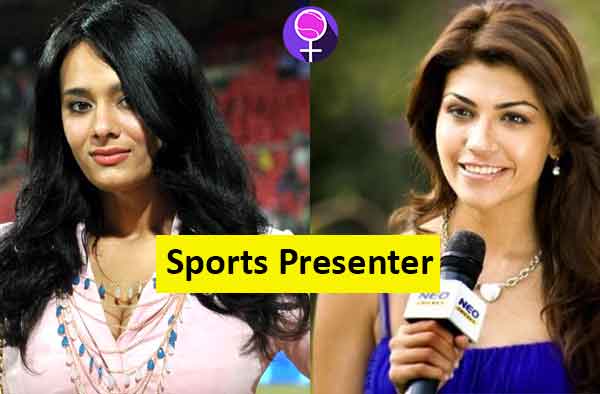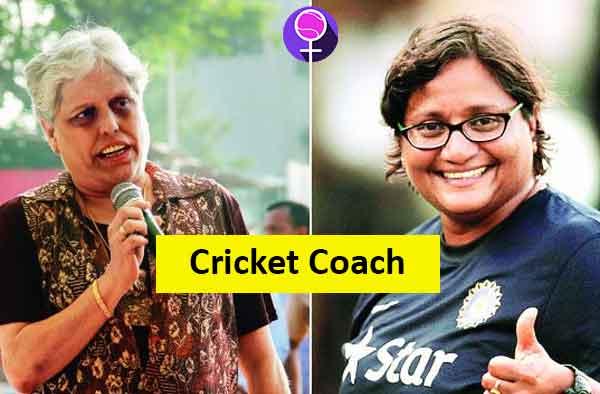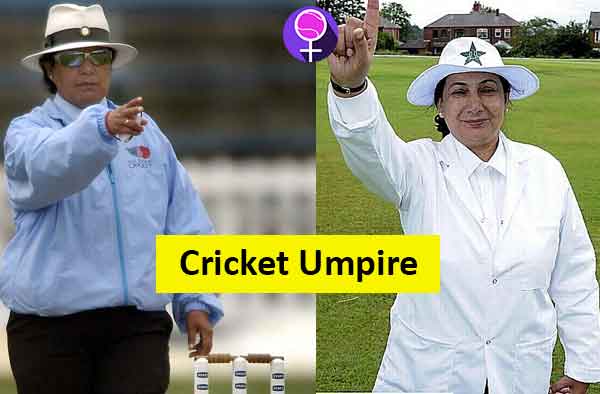Most of us look at cricket as a subject that is only constrained to the field. Cricket is finally accepting female recruitment and prospering with many advantages for girls. You wouldn’t believe me if I told you that it is possible to make for a promising career in cricket without playing on the pitch. Excluding the one of becoming a player below are the various options if you want to join the cricket community that is constantly growing with recognition.
1. Sports Presenter:

IPL. This must’ve been the first thing that came to your mind. Almost similar to a commentator on the cricket ground female sports presenters are not only much waited at the IPL but there are many other platforms that are in need of a presenter with an impressive personality and the right knowledge.
Requirements:
To work as a sports commentator, you’ll need a bachelor’s degree in broadcasting, journalism, or communications. On the job training is typically required, along with speaking, writing, listening and interpersonal skills, research abilities, media production skills, an appealing and well-groomed appearance, and a familiarity with editing software, broadcast equipment and telecommunications systems.
2. Statistician:
The work of a statistician is to collect, organize, interpret and summarize numerical data into usable information. It is obvious you would need such a person irrespective of whether the game is on or not. Statistical information needs to be precise so that it can be processed for making of points table, drawing graphs and providing predictions.
Requirements:
Quantitative and Technical skills are the most important keywords if you are looking for a career as a sports statistician. Moreover you need to be very accurate with numerical and statistical methods. Most of the information you’d be dealing with in sports statistics would be in a database, so learning SQL or another query language is important. In addition, mastering advanced spreadsheet skills such as pivot tables, macros, scripting, and chart customization would be useful.
Related Article : 5 things every girl cricket fan must have experienced
3. Cricket Coach:
The work of a coach is really a challenging one. A coach guides, corrects and helps the players to improve their skills. Devising strategies for each match and encouraging the players to give their best on the pitch are from the many responsibilities that a coach has to fulfill. You’ll need a coaching qualification that’s recognized by the national governing body (NGB) for your sport. Some employers will expect you to have a relevant higher education qualification like a foundation degree in sports coaching and development, HND in sports and exercise science and a degree in coaching, sports science, sports studies or physical education. You could start by volunteering as an assistant coach for a few hours a week to get experience.

4. Umpire:
If you like power then this designation gives it all to you. Though there is a catch. It is necessary for an umpire to have been a cricketer. This helps you get a better insight of the whole game and helps you make judgments. The job of an umpire is a crucial one because all you have to do is just raise our hand to change the whole game and decide where the advantages lie. Umpires have to be honest to one’s self as much as they have to be to the game. Their decisions on the cricket field are sacrosanct and no one dares question them.
Requirements:
To become an umpire, you have to qualify theory exams conducted by state sports bodies like the Delhi and District Cricket Association (DDCA). Once you qualify, you become eligible for the exams conducted by the Board of Control for Cricket in India (BCCI), and your state cricket association will endorse your candidature. Please note, gathering information on the exam dates etc. becomes easier if you are a cricket player at the state or club level. One should also ideally keep in touch with the state cricket associations’ convening committee to stay updated on exams.

5. Scorer:
If you’re a person with the eye for small details you have this job for you. The work of a scorer is to maintain a track of the balls played, the wickets taken, the runs scored and other kind of activity which comprises of collecting the data regarding the match being played.
Requirements:
Technical skills are important here too. Usually in international matches this work is done through automated software but at a smaller level there is always a person who keeps track and reports the status to the head in charge. To get this job you have to qualify for the exams conducted by the respective boards.
6. Physiotherapist:
A physio works along with the team during the match and takes care of the physical needs of the players. Anything might go wrong and immediate help might be needed and hence they have to be available for the team for help and therapy.
Requirements:
You’ll need a physiotherapy degree approved by the Health and Care Professions Council (HCPC), professional registration as a chartered physiotherapist, a relevant master’s degree, and 1 to 2 years’ work experience as a physiotherapist. Also a good understanding of sports training methods is needed.
Related Articles
Career options for girls in cricket
Most of us look at cricket as a subject that is only constrained to the field. Cricket is finally accepting female recruitment and prospering with many advantages for girls. You wouldn’t believe me if I told you that it is possible to make for a promising career in cricket without playing on the pitch. Excluding the one of becoming a player below are the various options if you want to join the cricket community that is constantly growing with recognition.
1. Sports Presenter:
IPL. This must’ve been the first thing that came to your mind. Almost similar to a commentator on the cricket ground female sports presenters are not only much waited at the IPL but there are many other platforms that are in need of a presenter with an impressive personality and the right knowledge.
Requirements:
To work as a sports commentator, you’ll need a bachelor’s degree in broadcasting, journalism, or communications. On the job training is typically required, along with speaking, writing, listening and interpersonal skills, research abilities, media production skills, an appealing and well-groomed appearance, and a familiarity with editing software, broadcast equipment and telecommunications systems.
2. Statistician:
The work of a statistician is to collect, organize, interpret and summarize numerical data into usable information. It is obvious you would need such a person irrespective of whether the game is on or not. Statistical information needs to be precise so that it can be processed for making of points table, drawing graphs and providing predictions.
Requirements:
Quantitative and Technical skills are the most important keywords if you are looking for a career as a sports statistician. Moreover you need to be very accurate with numerical and statistical methods. Most of the information you’d be dealing with in sports statistics would be in a database, so learning SQL or another query language is important. In addition, mastering advanced spreadsheet skills such as pivot tables, macros, scripting, and chart customization would be useful.
3. Cricket Coach:
The work of a coach is really a challenging one. A coach guides, corrects and helps the players to improve their skills. Devising strategies for each match and encouraging the players to give their best on the pitch are from the many responsibilities that a coach has to fulfill. You’ll need a coaching qualification that’s recognized by the national governing body (NGB) for your sport. Some employers will expect you to have a relevant higher education qualification like a foundation degree in sports coaching and development, HND in sports and exercise science and a degree in coaching, sports science, sports studies or physical education. You could start by volunteering as an assistant coach for a few hours a week to get experience.
4. Umpire:
If you like power then this designation gives it all to you. Though there is a catch. It is necessary for an umpire to have been a cricketer. This helps you get a better insight of the whole game and helps you make judgments. The job of an umpire is a crucial one because all you have to do is just raise our hand to change the whole game and decide where the advantages lie. Umpires have to be honest to one’s self as much as they have to be to the game. Their decisions on the cricket field are sacrosanct and no one dares question them.
Requirements:
To become an umpire, you have to qualify theory exams conducted by state sports bodies like the Delhi and District Cricket Association (DDCA). Once you qualify, you become eligible for the exams conducted by the Board of Control for Cricket in India (BCCI), and your state cricket association will endorse your candidature. Please note, gathering information on the exam dates etc. becomes easier if you are a cricket player at the state or club level. One should also ideally keep in touch with the state cricket associations’ convening committee to stay updated on exams.
5. Scorer:
If you’re a person with the eye for small details you have this job for you. The work of a scorer is to maintain a track of the balls played, the wickets taken, the runs scored and other kind of activity which comprises of collecting the data regarding the match being played.
Requirements:
Technical skills are important here too. Usually in international matches this work is done through automated software but at a smaller level there is always a person who keeps track and reports the status to the head in charge. To get this job you have to qualify for the exams conducted by the respective boards.
6. Physiotherapist:
A physio works along with the team during the match and takes care of the physical needs of the players. Anything might go wrong and immediate help might be needed and hence they have to be available for the team for help and therapy.
Requirements:
You’ll need a physiotherapy degree approved by the Health and Care Professions Council (HCPC), professional registration as a chartered physiotherapist, a relevant master’s degree, and 1 to 2 years’ work experience as a physiotherapist. Also a good understanding of sports training methods is needed.
Related Articles